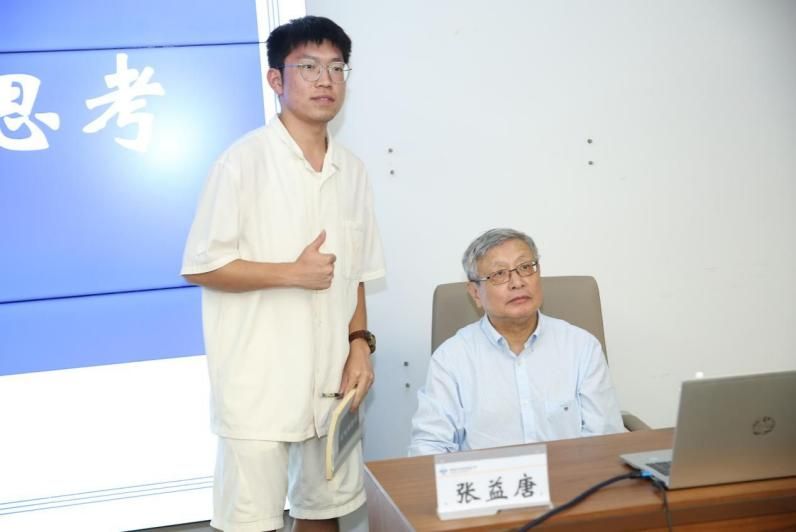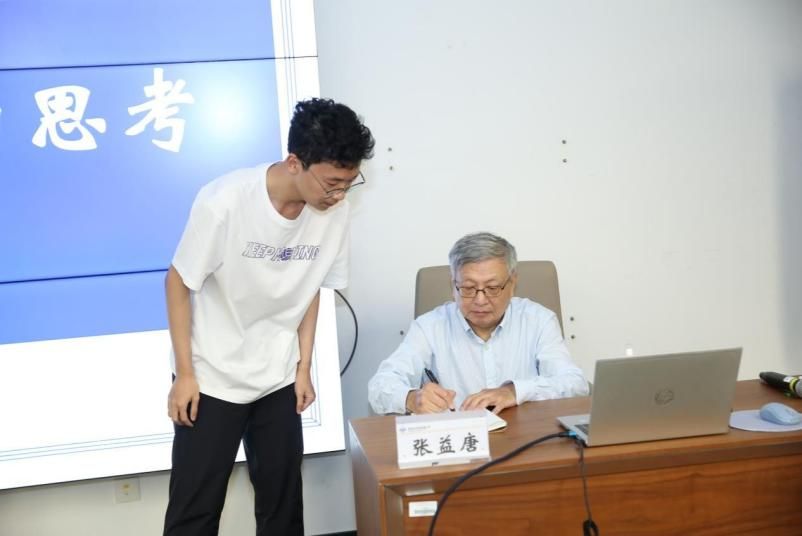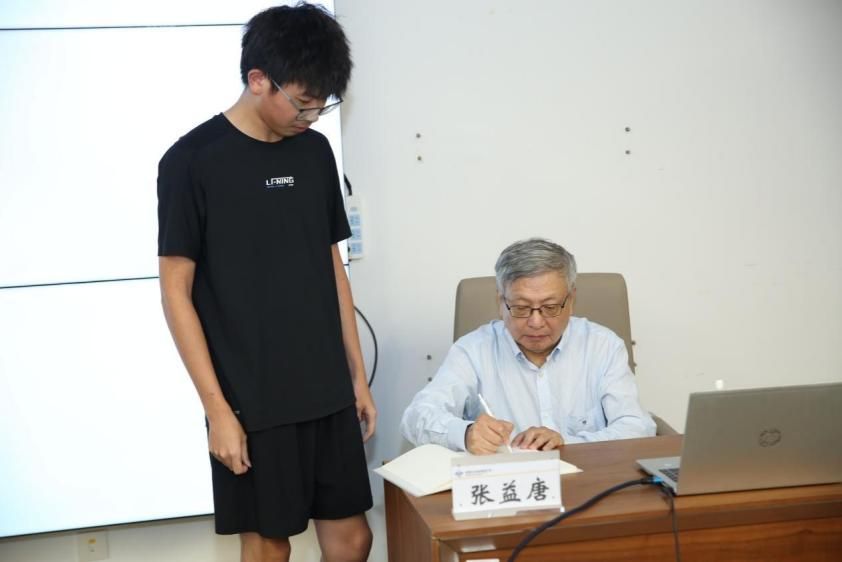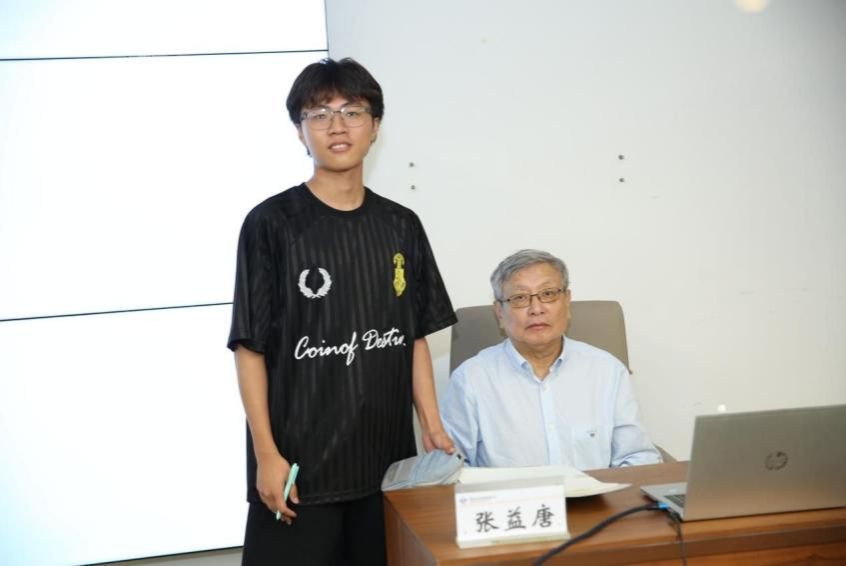On October 17, the Department of Computational Mathematics and Control at Shenzhen MSU-BIT University (SMBU) invited the renowned mathematician Prof. Zhang Yitang to campus, delivering an academic lecture titled Reflections on Mathematics. Following the lecture, Prof. Zhang engaged in an in-depth roundtable discussion with young faculty and student representatives from the department, offering guidance on both academic research and personal growth, with a lively and interactive atmosphere throughout the session.
Morning Dialogue: Close Interaction to Address Academic and Personal Questions
At the start of the roundtable, young faculty members presented their research directions and sought advice from Prof. Zhang Yitang on cutting-edge topics in analytic number theory, such as the latest results on the distribution of prime numbers. Drawing on his own research experience, Prof. Zhang explained complex concepts in accessible language, noting: "In mathematical research, one should not fear taking ‘detours.’ Many attempts that seem fruitless actually accumulate ideas that lead to breakthroughs later."
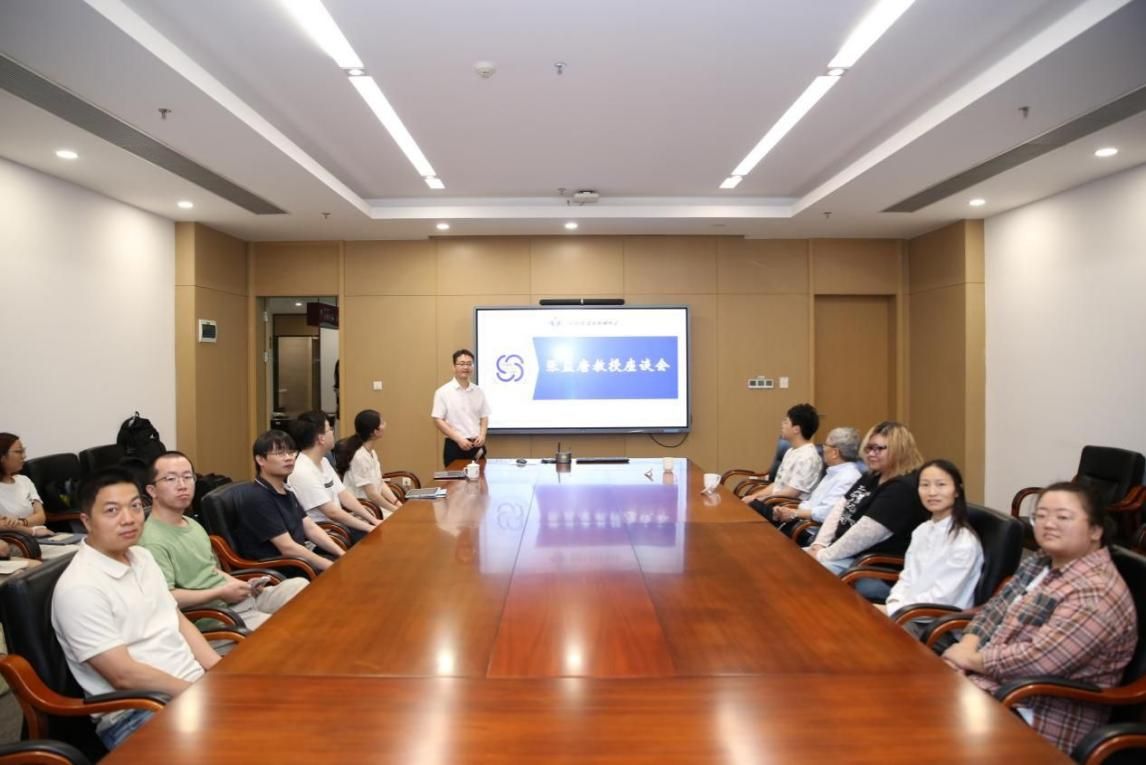
In response to students’ questions on balancing coursework and research or navigating research bottlenecks, Prof. Zhang shared his academic journey. He candidly admitted that he had faced extended periods of limited progress, but emphasized that “maintaining a passion and patience for mathematics” was essential to persevere. He encouraged students: "Build a solid foundation in mathematics, read classical works extensively, discuss unclear points with your instructors, and gradually cultivate mathematical thinking and research interests."
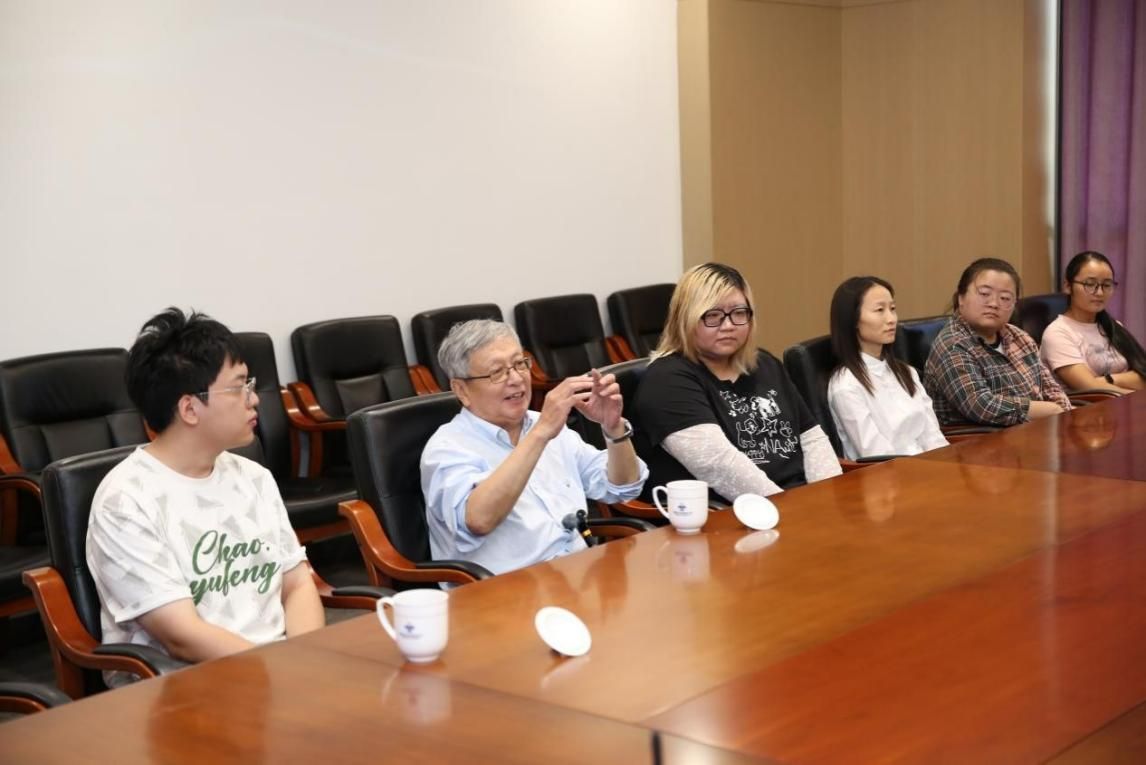
The session fostered a relaxed and collaborative environment, with students and faculty reporting that the close interaction not only clarified academic doubts but also provided inspiration through Prof. Zhang Yitang’s rigorous approach and dedication to research.
A Treasure at the Start: Revealing the “Cornerstone” of Russian Mathematical Excellence
In his lecture, Prof. Zhang Yitang offered a unique perspective by highlighting the rich legacy of Russian culture. He noted that while Russia is widely celebrated for its achievements in literature, music, and painting, mathematics has also been a “cornerstone” of Russian cultural excellence. He cited the translation of Soviet mathematics journals by the American Mathematical Society during the Cold War as evidence of Russia’s international influence in mathematics.

Tracing the Stars: Milestones in Russian Mathematical History
Reviewing Russian mathematical history, Prof. Zhang Yitang explained that from the Tsarist era to the Soviet period, Russia produced numerous exceptional mathematicians whose achievements often surpassed global contemporaries. He traced the origins of modern Russian mathematics to 1724, when Peter the Great founded the St. Petersburg Academy of Sciences, and Leonhard Euler came to work in Russia. Although initially assigned to the physiology department, Euler’s talent in mathematics allowed him to transfer to the mathematics department, where he solved the famous “Seven Bridges Problem” and completed most of his major works during this period. Prof. Zhang Yitang also cautioned that Euler’s classification as a “Russian mathematician” requires nuanced interpretation.
Discussing Nikolai Ivanovich Lobachevsky, Russia’s first globally influential native mathematician, Prof. Zhang Yitang interacted with students to test their knowledge of Lobachevsky’s contributions to non-Euclidean geometry. He shared that, prior to university, he had studied Soviet mathematics texts and deeply admired the Russian mathematical education system and its cultural depth, even reciting in detail Alexandrov’s assessment of Lobachevsky, highlighting the quote: "Russia did not appear on the international stage as a timid and obedient student of European culture, but as a force capable of producing its own new contributions unknown to Europe.”

Prof. Zhang Yitang also introduced the historical origins of the Goldbach Conjecture, explaining that although Goldbach proposed it after moving from St. Petersburg to Moscow, Euler agreed with its correctness but did not complete a proof in his lifetime. This illustrated the complexity of prime number problems to the audience. He highlighted Pafnuty Lvovich Chebyshev’s breakthrough in prime number theory, noting that Chebyshev was the first to rigorously establish the growth order of the prime counting function π(x), laying a solid foundation for the systematic study of prime distributions—despite the full proof of the Prime Number Theorem still being decades away. Through key stages of the theorem’s development, Prof. Zhang Yitang emphasized Chebyshev’s original contributions from zero to one.
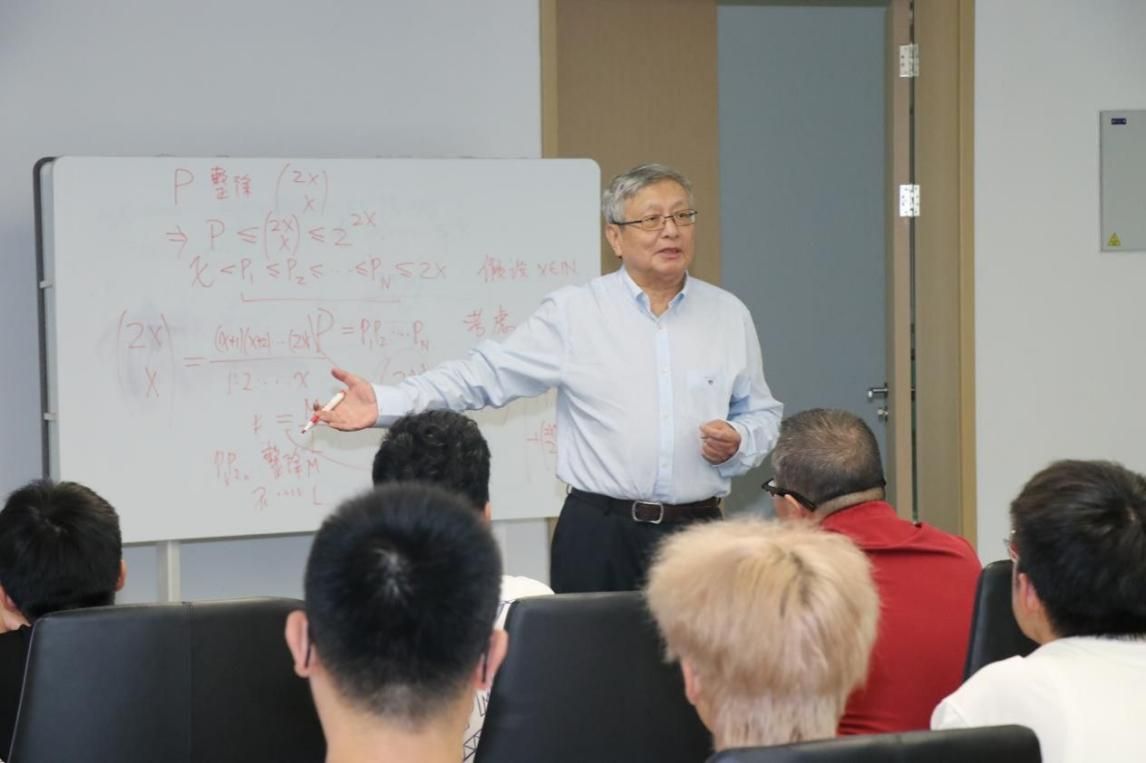
Moving into the 20th century, Prof. Zhang Yitang introduced achievements of Ivan Vinogradov, a Soviet analytic number theorist. In 1937, Vinogradov proved that sufficiently large odd numbers can be expressed as the sum of three primes without relying on the Generalized Riemann Hypothesis. Vinogradov’s academic exchange with Hua Luogeng is regarded as a highlight of Sino-Soviet scientific friendship, even noted in Hua’s diaries where they played snowball games together. Prof. Zhang Yitang also reflected on his 2013 breakthrough paper, which applied Vinogradov’s trigonometric sum methods, and discussed how improved methods could advance research on the Riemann Hypothesis.
Words for New Students: Lighting the Path Forward in Mathematics for Young Scholars
Before concluding, Prof. Zhang Yitang advised incoming students: "Do not fear advanced mathematics. Its fundamental ideas are clear. By developing problem-solving strategies and maintaining mathematical imagination, you can master first-year mathematics and build a strong foundation for future studies.”
After the lecture, many students gathered to request autographs and take photos with Prof. Zhang Yitang, capturing the memorable academic exchange. Students expressed that the lecture not only provided a deep understanding of the brilliance of Russian mathematics but also enhanced their interest in mathematical research and strengthened their confidence in learning mathematics.
